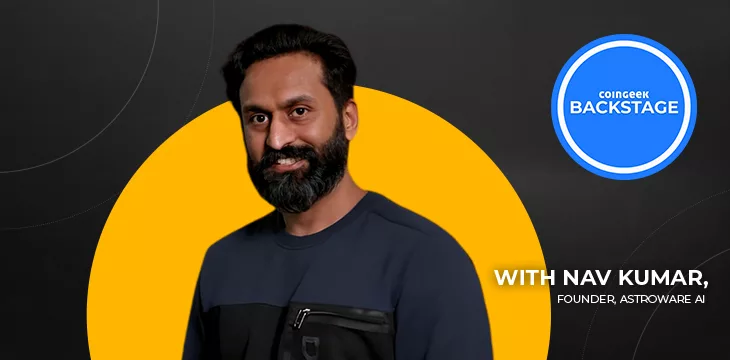While they are pitted against each other as competing technologies, artificial intelligence (AI) and blockchain complement and improve each other, says Nav Kumar. In an interview with CoinGeek Backstage, Kumar delved into the intersection of the two technologies and the new use cases arising from the fusion.
Kumar was one of the presenters at AI Forge’s ‘Intro to AI & Blockchain Masterclass’ in London. Becky Liggero caught up with him after the event to discuss his company, Astroware AI, his journey in blockchain, and where AI fits in.
Astroware AI is building a community CRM akin to “a HubSpot for communities,” he told CoinGeek Backstage. The solution targets community-led marketing and addresses the vast fragmentation of communities on dozens of platforms.
Kumar previously worked with Oracle for over 14 years, where he engaged in a lot of predictive work that set the foundation for today’s AI advancements. He currently serves as a mentor with Outlier Ventures, one of the world’s largest Web3 accelerators.
His diverse background has enabled him to identify the pain points in various sectors and how technology can solve them.
“With AI and blockchain, we’re creating an Industrial Revolution moment for knowledge work,” he noted.
One area in which AI can impact blockchain is smart contract development. Today, developers work on smart contracts case-by-case, leaving room for many errors and mismanagement. With AI, you could automate the creation of smart contracts.
However, researchers have found that AI isn’t ready to completely replace developers in the blockchain world. They have recommended using AI to automate some tasks but warned against relying on the technology for the entire process. One study by Salus Security
concluded that ChatGPT cannot detect smart contract vulnerabilities yet.
Conversely, blockchain is critical to the future of AI. With AI entirely reliant on data for training, blockchain could be used to authenticate the data. Additionally, through digital identities, data generators could fully own their data and get paid every time it’s used to train AI through microtransactions.
With blockchain, “you have a handle on your data, and AI could process it in a privacy-preserving way,” Kumar added.
In order for artificial intelligence (AI) to work right within the law and thrive in the face of growing challenges, it needs to integrate an enterprise blockchain system that ensures data input quality and ownership—allowing it to keep data safe while also guaranteeing the immutability of data. Check out CoinGeek’s coverage on this emerging tech to learn more why Enterprise blockchain will be the backbone of AI.
Watch: How blockchain will keep AI honest
New to blockchain? Check out CoinGeek’s Blockchain for Beginners section, the ultimate resource guide to learn more about blockchain technology.

